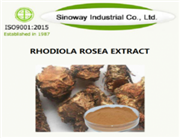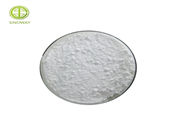Product Information
Product name | Ergothioneine ; EGT ; ERGO ; L-Ergothioneine,2-thio-imidazole |
CAS No. | 497-30-3 |
Molecular Formula | C9H15N3O2S |
Molecular Weight | 229.3 |
Quality Standard | 98% up, Cosmetic Grade |
Appearance | White to off-white powder |
COA of Ergothioneine
TEST | SPECIFICATION | RESULTS |
Appearance | White to off-white powder | Conform |
Odor | Characteristic odor | Conform |
Structure identification (NMR) | H-NMR & C-NMR | Conform |
Assay (HPLC-DAD) | ≥ 98.00% | 99.40% |
Content (EGT) | ≥ 98.00% | 99.91% |
Specific rotation [α]20 D | ≥(+)122。 (c=1, H2O) | +123.8。 |
Aerobic plate (CFU/ml) | ≤100 CFU/ml | Conform |
Yeast & Molds (CFU/ml) | ≤10 CFU/ml | Conform |
Escherichia coli | Negative | Conform |
Pseudomonas aeruginosa | Negative | Conform |
Staphylococcus aureus | Negative | Conform |
Heavy metal | ≤20 ppm | Conform |
Conclusion | Up to the standards |
Usage
Ergothioneine ( EGT ) is a natural antioxidant that can protect cells in the human body and is an important active substance in the body. Natural antioxidants are safe and non-toxic, and have become a research hotspot. As a natural antioxidant, ergothioneine has come into people's field of vision. Ergothioneine has many physiological functions such as scavenging free radicals, detoxifying, maintaining DNA biosynthesis, normal cell growth and cellular immunity.
Function of Ergothioneine
1. Anti-oxidize effect
Ergothioneine ( EGT ) is a natural amino acid that is derived from plants and can accumulate in animals. Studies have shown that it has an antioxidant effect. It can effectively remove -OH, chelate ferrous ions and copper ions, and prevent H2O2 Under the action of iron ions or copper ions, -OH is generated, which can also inhibit the oxidation of copper ion-dependent oxygenated hemoglobin. It can also inhibit the peroxidation of arachidonic acid after myoglobin (or hemoglobin) is mixed with H2O2. reaction. Ergothioneine can also strongly scavenge hypochlorous acid, thereby preventing a 1-anti-protease inactivation. However, it cannot inhibit lipid particles from peroxidation in the presence of iron ions. Studies by AKanmu D and others have shown that a certain concentration of Ergothioneine in the body can act as an antioxidant.
2. Protective effect on cells
Ergothioneine ( EGT ) is a powerful hypochlorous acid scavenger (HOCl). Although many compounds can react with hypochlorous acid, few can react as quickly as Ergothioneine. a 1- Anti-protease inhibitors (API), such as elastase, are particularly sensitive to hypochlorous acid, and physiological concentrations of ergothioneine can protect API very effectively against the inactivation caused by hypochlorous acid. Sex granulocytes are the main source of hypochlorous acid in the body. One of the functions of ergothioneine is to protect red blood cells from the damage of neutrophils from normal function or pathological inflammation sites.
3. Anti-inflammatory effect
Peroxynitrite is an endogenous formation of the limited diffusion reaction of NO and superoxide. It is a strong oxidant related to the pathophysiology of inflammation, such as ischemia-reperfusion injury, atherosclerosis, acute pneumonia and sepsis. Ergothioneine ( EGT )can inhibit the oxidation of amino acids mediated by peroxynitrosoanions, such as tyrosine nitrification, thereby providing feasibility for the treatment of inflammation.
4. Other biological functions
Since the discovery of Ergothioneine ( EGT ), many people have tried to explain its physiological function, but they have not been able to completely define its physiological function. Brummel.mc study found that ergothioneine may also have the following functions: transport cations and catalysis of carbon dioxide carboxylation or decarboxylation; regulate thyroid and anti-thyroid effects; regulate histamine or antihistamine; cholinergic function or Anti-parasympathetic physiological effects; can adjust the reaction activity of other acyl carriers or act as acid-based carriers. Epand R M and others also studied the effect of ergothioneine on diabetes.
Ergothioneine ( EGT ) has strong antioxidant activity: it clears reactive oxygen species, chelates divalent metal ions, activates antioxidant enzymes, inhibits superoxide dismutase, and inhibits the oxidation of various heme proteins. Due to these characteristics of Ergothioneine, it has a wide range of uses and market prospects in the fields of medicine, food and beverage, functional food, animal feed, cosmetics and biotechnology.
Metabolism of Ergothioneine ( EGT )
Studies have shown that Ergothioneine ( EGT ) cannot be synthesized in animals, but it has been clearly shown in plants and microorganisms that histidine, the sulfuratom, and the methyl groups of methionine can be incorporated into thioneine. D. Yanasugondha and MD Appleman studied the catabolism of ergothione in microorganisms. They found that Ergothioneine can be converted into trimethylamine and thiol imidazole acrylic acid; Heath was feeding long rats for up to 21 days with [S] ergosulfur. After eating the food, it was found that the [S]-labeled thioneine was distributed in the bone marrow, red blood cells, liver, kidney and other parts. And George Wolf et al. first injected [α-S] ergothioneine into mice, and then studied the distribution of radioactive energy and its metabolites. It is proved that herzynine is a precursor for the synthesis of ergothioneine.
Company Information


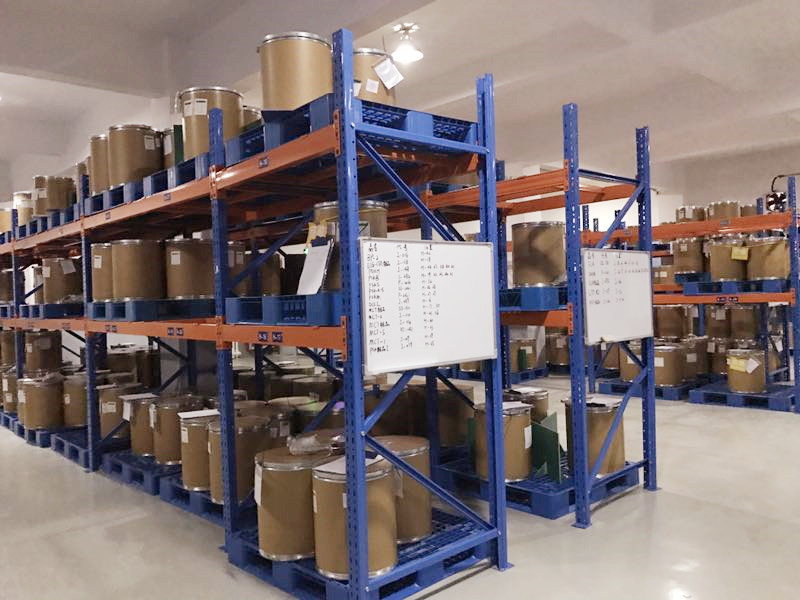

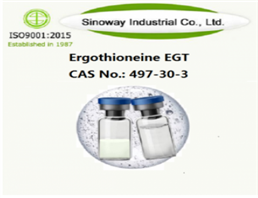
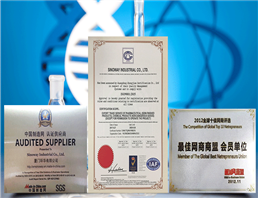
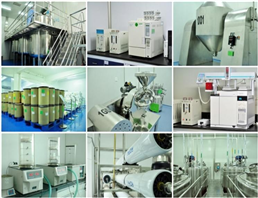
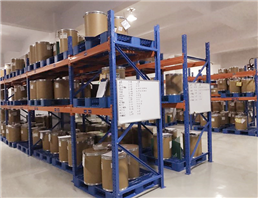


 China
China
